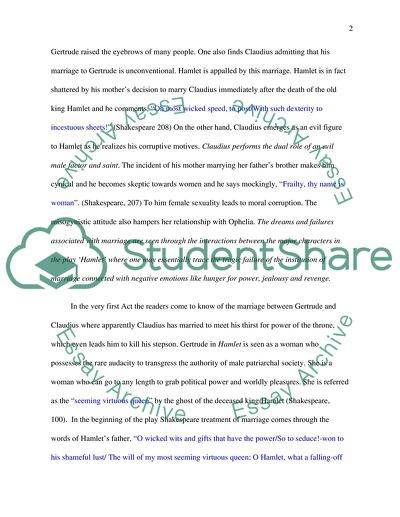Cite this document
(Shakespeares Portrayal of Hamlet: the Themes of Love and Marriage Literature review - 3, n.d.)
Shakespeares Portrayal of Hamlet: the Themes of Love and Marriage Literature review - 3. Retrieved from https://studentshare.org/literature/1746749-shakespeare
Shakespeares Portrayal of Hamlet: the Themes of Love and Marriage Literature review - 3. Retrieved from https://studentshare.org/literature/1746749-shakespeare
(Shakespeares Portrayal of Hamlet: The Themes of Love and Marriage Literature Review - 3)
Shakespeares Portrayal of Hamlet: The Themes of Love and Marriage Literature Review - 3. https://studentshare.org/literature/1746749-shakespeare.
Shakespeares Portrayal of Hamlet: The Themes of Love and Marriage Literature Review - 3. https://studentshare.org/literature/1746749-shakespeare.
“Shakespeares Portrayal of Hamlet: The Themes of Love and Marriage Literature Review - 3”, n.d. https://studentshare.org/literature/1746749-shakespeare.


